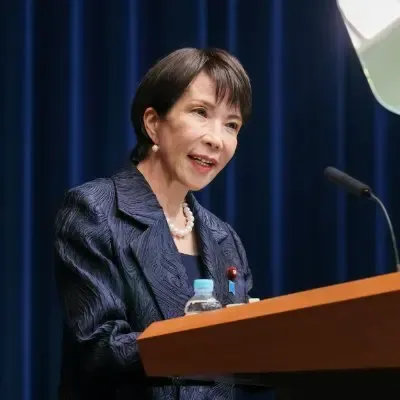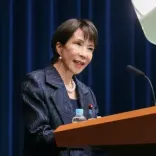Are Japan PM's efforts to change non-nuclear principles igniting backlash?

Synopsis
Key Takeaways
- The Three Non-Nuclear Principles are a fundamental aspect of Japan's defense policy.
- Changes to these principles could provoke significant backlash.
- The historical context of Japan's nuclear stance is crucial to understanding its current policy considerations.
- Prime Minister Takaichi's deliberation reflects broader security concerns in the region.
- Public support for the principles remains strong among the Japanese populace.
Tokyo, Nov 16 (NationPress) Japanese Prime Minister Sanae Takaichi is contemplating a revision of the nation's enduring Three Non-Nuclear Principles, a move that is likely to provoke significant backlash.
In an effort to update Japan's National Security Strategy and two related documents, last amended in 2022, Takaichi is considering altering the third tenet, which prohibits the presence of nuclear weapons within Japan's borders, as reported by the Xinhua news agency citing Kyodo News (referencing government insiders).
If this principle is modified, it would indicate a profound transformation in the country's security policy, set to elicit both domestic and international opposition, the report highlighted.
First articulated in the Diet, Japan's legislative body, by former Prime Minister Eisaku Sato in 1967, the Three Non-Nuclear Principles—which state that Japan will not possess, produce, or allow nuclear weapons to be introduced into its territory—are regarded as a cornerstone of national policy.
The national security strategy, one of the three documents sanctioned by the Cabinet in 2022, asserts, "The fundamental policy of upholding the Three Non-Nuclear Principles will remain unchanged in the future."
While Takaichi has no plans to amend Japan's position on the possession or production of nuclear arms, she is concerned that prohibiting the introduction of nuclear weapons could impede visits by US vessels carrying nuclear arms, thereby undermining US nuclear deterrence, the report indicated.
During a recent hearing of the Lower House Budget Committee, Takaichi sidestepped questions regarding whether her defense and security policies would remain consistent with the Three Non-Nuclear Principles observed by Japanese governments for decades.
An editorial in the Asahi Shimbun argued that, as a nation that has endured atomic bombings, Japan has enshrined the Three Non-Nuclear Principles as a matter of national policy, enjoying extensive support from the populace.
The editorial emphasized that Takaichi must recognize that the policy of adhering to the Three Non-Nuclear Principles cannot be recklessly altered based on the impulsive judgment of the prime minister.









